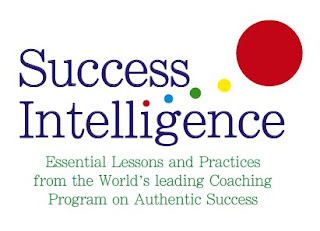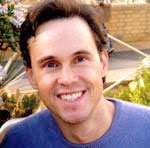
by Ben Renshaw, Co-Director of Success Intelligence
Today was a significant event as the 150 leaders of Government Council gathered together to focus on how they were going to create leadership success in an uncertain future. As a Council they are being faced with needing to make 12-20% financial cuts over the next 3 years, which they recognise means that they will have to discover new ways of leading to deliver the same quality of service with less resource.
I had been invited to stimulate their thinking and had put together 3 key leadership themes to explore:
1. Leadership inspiration.
I started off with the idea that leadership is inspiration. I cited research from the Department of Trade and Industry who conducted a national survey to find out the components of successful leadership. Top of the list with 53% of respondents was inspiration. However, when asked how inspirational employees found their leaders only 11% believed that their leaders had the ability to inspire. This was in marked contrast to the 75% of leaders who thought that they did inspire their people. I find this ‘inspiration gap’ very common. In fact I would go as far to say that it’s quite rare to find leaders who genuinely set a compelling example for their people on a regular basis.
The first challenge I set the group was to think about the kind of decisions they make in the formative part of their days. Responses included, ‘Hit snooze’, ‘Walk the dog’, ‘Get the kids up’, ‘What am I going to wear?’ Inspirational stuff from a room of senior leaders! I set out a proposition that being inspirational starts with a mindset. It is influenced by the type of decisions you make each day. Set the intention to be inspirational and it will encourage you to make it a priority. I then invited people to reflect upon what inspires them through questions such as, ‘What do I love?’ ‘What is my joy?’ ‘What is my passion?’ It was heartening to see a group move from being relatively cynical about leadership to becoming genuinely engaged with the recognition that in order to inspire others, they need to be inspired themselves.
2. Leadership style.
Great leaders have the ability to read situations well and adapt their styles accordingly. One of the most outstanding leaders I know is a CEO who has a remarkable ability to flex his style in an effortless way including fronting up to the City, communicating with shareholders, working with his executive team and inspiring his employees. However, it wasn’t always the case. When he landed the coveted job of CEO he was renowned for a highly directive style, which had certainly helped him get where he was, but was not going to help him succeed in the future. He quickly recognised that in order to engage his workforce he needed to develop a variety of styles, in particular a collaborative style that ensured others felt important through being consulted, listened to and trusted.
Daniel Goleman, author of Emotional Intelligence, conducted extensive research on leadership styles and identified 6 key styles, each of which has a different impact on the quality of the culture in an organisation. In his well-known Harvard Business Review article, 'Leadership That Gets Results', the most positive style that emerged was a visionary one. The ability to articulate a compelling vision with the message, ‘Come with me’ creates the necessary alignment to take a company forward. Other styles with a positive impact included a democratic and coaching approach. The most negative styles were a commanding/coercive style, which is appropriate in a crisis, but if used overtime causes high levels of disengagement, and a pace-setting approach, which certainly helps drive performance, but if overused burns people out and is not sustainable.
3. Leadership growth.
I challenged the audience to think if they have reached their leadership peak, or do they still have room to grow? One of the key principles of Success Intelligence is ‘For an organisation to grow, its leaders need to grow’. In our work we see a direct correlation between individual and organisational development. In fact the consultancy McKinsey cited important research from their seminal work, War for Talent, which showed that 53% of managers left their jobs specifically due to a lack of development, in the form of coaching, mentoring and job rotation.
Take a moment now to think about how have you grown so far in 2009, and how you intend to grow coming into 2010?
I want to leave you with the idea that leadership success is not a position, title, or role. Ultimately, it is a commitment to giving your best energy, opening your heart, sharing your thoughtful reflections and being inspired yourself.
